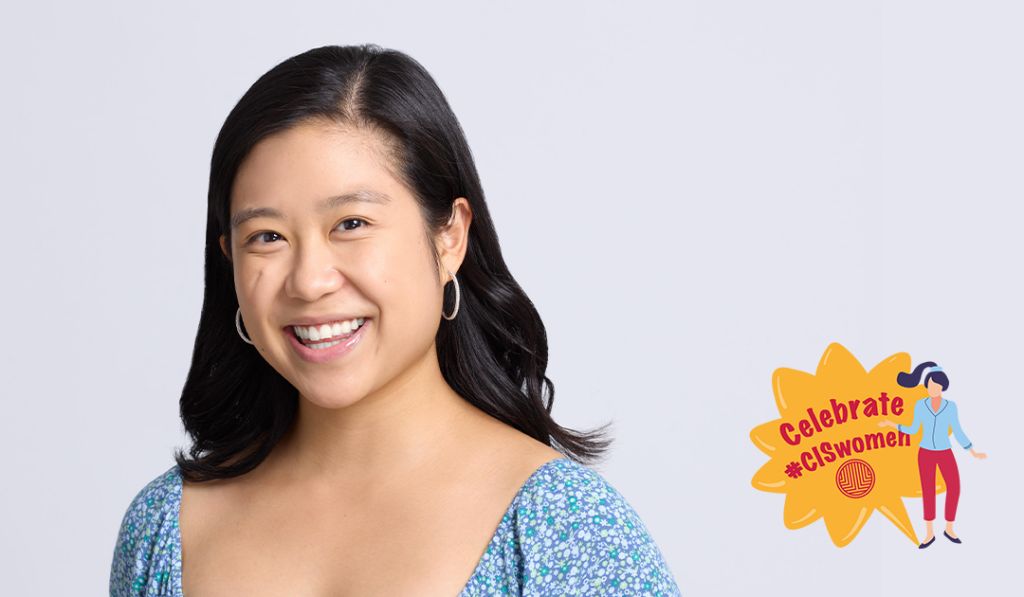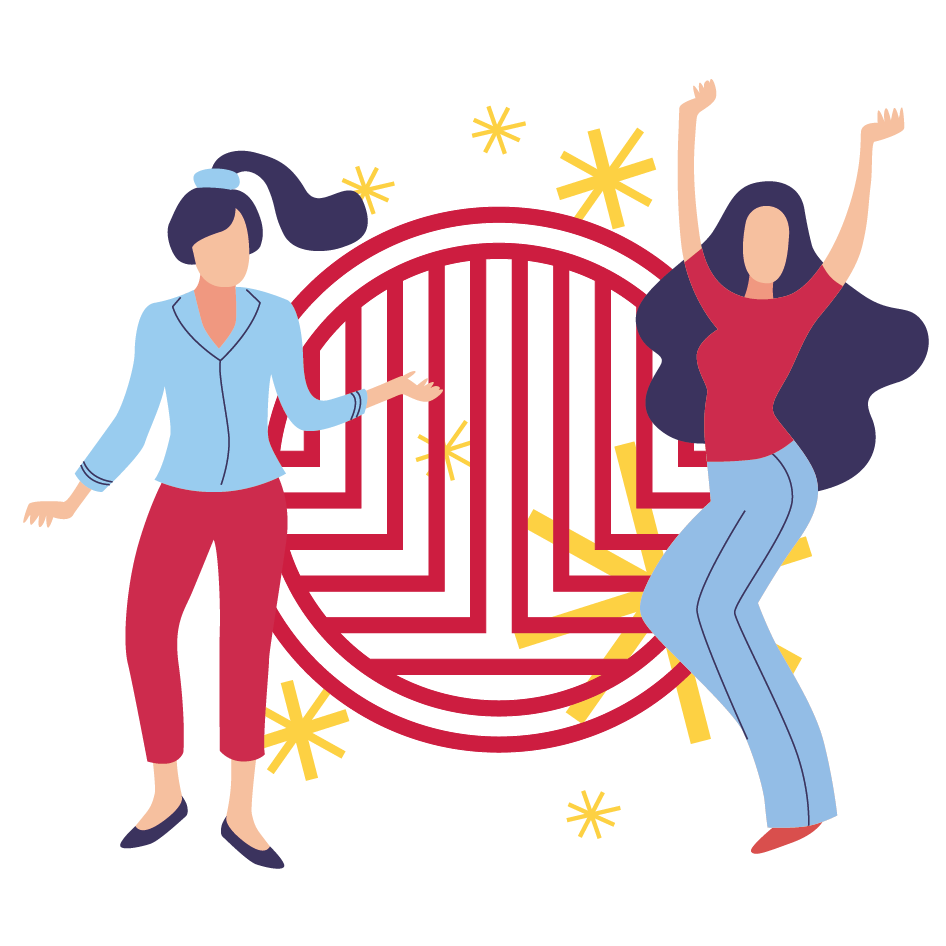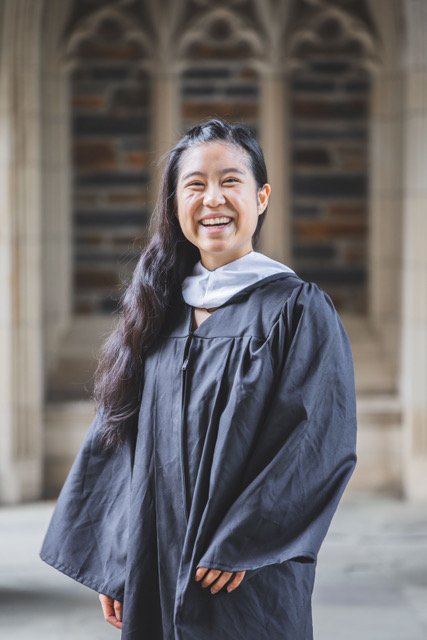Steph is currently pursuing her master’s degree in clinical psychology at Teachers College of Columbia University. She founded Body Banter, an online platform for students to share their unique stories and perspectives on body image, in 2017 after realizing the powerful role that discussion and advocacy played in her own eating disorder recovery journey. Read her story here…

- Name: Steph Ng
- Graduating Year: 2015
- Years at CIS: 14 (since reception!!! :D)
- College & Degree: Duke University (B.A.), currently pursuing my master’s degree in clinical psychology at Columbia University.
- Current city of residence: New York City!

As part of International Women’s Day, we asked Steph the following IWD-related questions:
Which of these IWD values mean the most to you, and why?
- Justice, Dignity, Hope, Equality, Collaboration, Tenacity, Appreciation, Respect, Empathy, Forgiveness
The two IWD values that mean the most to me are tenacity and empathy. There seems to be a dichotomous view of what the perfect woman “should” be – either fierce or submissive. I would like to be a blend of both – someone who is unafraid to strive for what she believes in, and who is driven to do so from a place of trust, compassion, and kindness.
Who is the woman that most inspires you, and why?
A woman that most inspires me is Mrs. Chadwick. She is a living example of the two IWD values I most resonate with – tenacity and empathy – and continues to be one of the strongest examples of a woman who is both strong and soft. I will never forget the way that she supported our entire year group with the strength of an iron pillar, while always offering a gentle place to land when we were confronted with challenges in our lives.
Could you introduce yourself a bit (background & what you are currently doing?)
Hiya! My name is Steph. I was born in Toronto, Canada, but returned to Hong Kong shortly after birth, so I would definitely call Hong Kong my home (I always joke that the only thing I really know about Canada is that it has good maple syrup, haha!) I graduated from Duke University in May of 2019, and am currently in the first semester of my masters degree in clinical psychology at Teachers College of Columbia University!
Can you tell us more about your online blog bodybanter.com?
Absolutely! Body Banter is an initiative that aims to position students at the centre of the movement towards creating a culture that values and celebrates diversity in the ways our bodies look and feel, through establishing discussion groups at high school and college campuses around the world, providing an online platform for story sharing and free access to supportive resources, and connecting student ambassadors globally to collaboratively advocate for positive change.
What inspired you to start this initiative? What inspired you to study psychology?
I created the Body Banter initiative for two main reasons: to empower the young people of today to redefine what their bodies mean to them, and also to keep myself accountable in my own recovery. I believe that our best work comes from a very personal place, which is why I regularly share my recovery realizations on the Body Banter instagram page, and love seeing how it resonates with many others and inspires them to speak up about their struggles too.
The study of psychology has always fascinated me. I think that as humans, the inability to strictly categorize people is sometimes scary – it is scary to see that humans don’t belong in neat categories and are each unique in their own ways. The study of psychology has helped me embrace instead of fear that reality – to see that diversity is what makes our world fascinating, and what makes each human interaction refreshing and meaningful.

What has been the biggest challenge you have faced? How did this contribute to who you are today?
The biggest challenge would have to be redefining myself as a person after my eating disorder. During my illness, I let myself be completely defined by my eating and exercising habits – I liked being known and praised for my “diligence” in sticking to a particular way of eating and exercising. However, it led me down a dark rabbit hole of becoming obsessive about these behaviours, and I realized that life was about so much more than just these two aspects of my life. Broadening my interests through exploring new passions and constantly doing things that scared me was certainly challenging, but also incredibly rewarding. I think that fear is a necessary catalyst for growth, and I think that becoming the person that you want to be takes a willingness to take intentional and often, uncomfortable steps. A motto that has motivated me in recovery is, “you are never ready until you do it” which encapsulates the idea that the first step to ‘achieving’ is just committing to ‘doing.’
What is your advice for any young alumni who are struggling with an eating disorder?
A mantra that has led the way in my recovery is that “only the practice of self-love will lead to self-love.” I think that an ingrained belief for many of us who struggle is that our struggles will eventually lead to a better life. For instance, I thought that if I restricted my food intake or controlled my exercise regime, I would be able to produce a ‘better’ version of myself. In short, I believed that I could only achieve the body that I wanted (and thus the life that I wanted) if I hated myself enough (i.e., the “tough love” mentality). The biggest realization in recovery for me was that it just doesn’t work like that: self-hate only breeds more self-hate. Even when I did reach the weight that I aspired to be, I was still stuck in the same self-hating mindset, and still based my sense of self-worth on what others thought of me. I still struggled with crippling insecurity and constantly feared that I would lose the privileges that I enjoyed in a smaller body.
Recovering from an eating disorder means acknowledging that happiness does not come in the form of a certain body shape. Instead, it comes from shifting your mindset to one where contentment and fulfilment are simply not contingent on body shape. It means learning to respect your body for its role in supporting you to live your fullest life – treating it well and keeping it healthy so that you can realize bigger dreams in your life.
I know that right now, it seems like letting go of controlling your eating and exercising regime is the scariest thing that you can imagine. I know that giving up this control feels like “giving up.” But I’d like to invite you to think about it this way: that continuing to obsess over controlling your body is only keeping you under the control of society’s expectations, and taking time and energy away from exploring the activities that truly help you grow and flourish. Harness that determination and drive that I know you have, and direct it towards something that you truly love to do.
What are your plans for the future?
My biggest dream would be to come back to Hong Kong after completing a PhD degree in clinical psychology, and serve my amazing community. In particular, I would like to explore ways to make mental healthcare resources accessible and acceptable (and hopefully enjoyable!) for all, and to make sure that everyone feels supported and safe, no matter what they are going through.
What was your most memorable CIS moment?
When our year group did a High School Musical flashmob in the middle of the courtyard for Year 13 prank day!! Our head boy and girl got “married” and I was the “wedding ring”!!
How did your CIS experience contribute to who you are today?
As a CIS student that started in reception and continued up all the way into Year 13, I can pretty much say that the CIS community brought me up. I have made some of my best, lifelong friends at CIS, and have also formed relationships with teachers and staff members that I treasure deeply to this day. I truly consider the CIS community my extended family 🙂
What was your favourite subject at CIS and was it related to anything you actually ended up doing?
I always particularly adored the language subjects (Chinese, English and French), which I think contributed to my passion for understanding and exploring cross-cultural perspectives today. In particular, my love for language has helped me understand how language shapes our thoughts and beliefs in significant ways – it literally changes what we can (and cannot) express in words. I think that a big part of promoting positive mental health is giving people the language to express their experiences, which is why I think story-sharing is so important – reading and hearing stories that resonate with our own provide a framework for contextualizing and understanding our experiences, and help us begin the process of healing.
Please read the following questions and write down the first answer to pop into your mind (3-second limit):
- What is your favourite movie/production: Ooh, this one’s tough! The first one that comes to mind is “The Parent Trap”, because there is a hilarious scene that I have very fond memories of watching over and over again with my bestie, Cara (who also went to CIS! :D)
- What can you not live without? Oh my, I never thought I would say this but…coffee. It’s not even the caffeine that I need (even decaf has the same energizing effect on me – I have experimented with this!) but rather the amazing, invigorating smell that wafts out of my warm mug in the morning 😛
- What do you like to do in your free time? I love podcasts so much! Oftentimes my eyes get really tired from reading articles for class, and listening to podcasts allow me to absorb non-school-related material without tiring my eyes out even more. Podcasts that I have been enjoying recently are “Food Psych” by Christy Harrison, “Invisibilia” by NPR and “Switched on Pop” by Vox.
- If you could have a one-hour conversation with anyone – historical or current – who would that be and why? I would LOVE to talk to Jameela Jamil, who is not only on one of my favourite shows (“The Good Place” – if you haven’t watched it yet, you should!!) but also an avid body positive advocate! She is so fearless and eloquent, and I think it would be incredible to just hear her story in person.
To contact Steph and to read more about her journey, visit her blog page here!